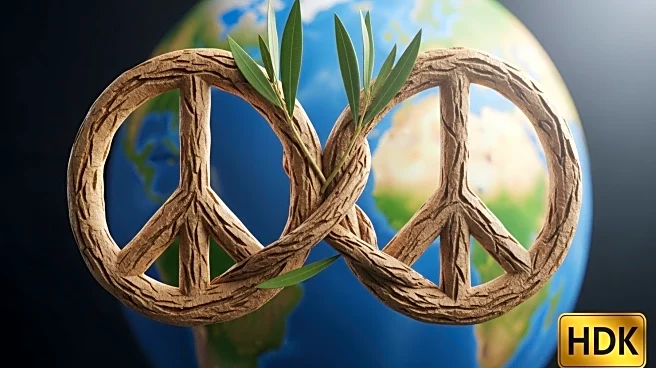What's Happening?
Iran has criticized Britain, France, and Germany for reimposing UN sanctions, arguing that the move lacks legal standing and undermines diplomatic efforts. The sanctions were reactivated as part of a mechanism to penalize non-compliance with the 2015 nuclear deal, which Iran claims it adhered to until the U.S. unilaterally withdrew in 2018. Iran's Foreign Minister Seyyed Abbas Araghchi emphasized that the European countries are following a reckless course that could backfire, urging them to reconsider their stance and engage in honest dialogue. Iran remains open to diplomacy, seeking a realistic agreement that includes oversight and curbs on enrichment in exchange for lifting sanctions.
Why It's Important?
The reimposition of sanctions by European countries could escalate tensions in the Middle East, affecting global diplomatic relations and economic stability. The sanctions impact Iran's economy and its ability to engage in international trade, potentially leading to further regional instability. The situation also highlights the complex dynamics between the U.S., Europe, and Iran, with potential implications for global security and nuclear non-proliferation efforts. The outcome of this diplomatic standoff could influence future international agreements and the role of multilateral organizations in conflict resolution.
What's Next?
Iran has signaled its willingness to negotiate, but the success of future talks depends on the willingness of European countries to engage constructively. The international community will be watching closely to see if diplomatic efforts can prevent further escalation. The potential for renewed dialogue could lead to a revised agreement that addresses the concerns of all parties involved, but failure to reach a consensus may result in increased tensions and further economic sanctions.
Beyond the Headlines
The situation underscores the challenges of maintaining international agreements in a multipolar world where geopolitical interests often clash. The role of the U.S. in influencing European policy decisions is evident, raising questions about the balance of power in global diplomacy. The outcome of this situation could set a precedent for how similar conflicts are managed in the future, highlighting the importance of multilateral cooperation and adherence to international law.









